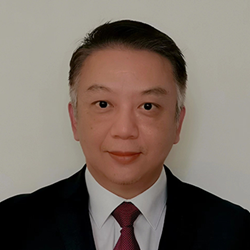Home> Plenary Speakers
James Jeiwen Chou
Updated: 2024-07-26

James Jeiwen Chou
Researcher
Shanghai Institute of Organic Chemistry, CAS
James Jeiwen Chou, currently a researcher at Shanghai Institute of Organic Chemistry, Chinese Academy of Sciences (CAS), completed his bachelor’s degree in physics from the University of Michigan in 1994 and his PhD in biophysics from Harvard University in 1999. He then received postdoctoral training at the US National Institutes of Health from 1999 to 2002.
In 2003, Chou moved back to Harvard University to start his career as an assistant professor and was promoted to tenured professor in 2012. In early 2023, he joined the CAS Shanghai Institute of Organic Chemistry and the Interdisciplinary Research Center on Biology and Chemistry as a full-time researcher.
He has published over 120 papers with more than 13,000 citations. The honors he has won include the title of Pew Scholar in the Biomedical Sciences, the Smith Family New Investigator Award and the Genzyme Outstanding Achievement in Biomedical Science Award.
Research
Cell surface receptors account for the vast majority of targets of therapeutic antibodies. While mechanistic and structural studies have concentrated on the ligand-engaged, activated forms of the receptors, little information is available on the resting, inactive conformation of the receptors in the context of cell membranes.
How receptors “rest” on the cell membrane has a direct implication for their autoinhibition mechanism and preparation for ligand binding and is thus important to the development of agonistic or antagonistic antibodies for therapeutic applications. Historically, the pre-ligand states of single-pass transmembrane receptors have been extremely difficult to visualize due to the technical challenges of working with proteins in the context of lipid bilayer.
Our research program integrates structural biology, cell biology, and nanotechnology to fill the long-standing knowledge gaps in receptor biology, such as receptor pre-ligand conformation, receptor autoinhibition mechanisms and higher-order receptor clustering important for the activation and regulation of transmembrane signaling.
In addition to the goal of acquiring a fundamental understanding of receptor signaling, our lab also innovates new drug delivery technologies that afford combinatorial flexibility and multiple specificity, with the goal of maximizing the therapeutic potential of the newly-discovered molecules that modulate receptor activities.
